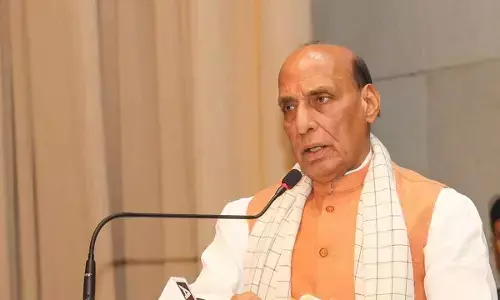Opposites attract, only in rare cases: Study
Share :

Contrary to the popular theory that opposites attract, a new study including data from millions of couples finds that this happens only in rare cases.
New York: Contrary to the popular theory that opposites attract, a new study including data from millions of couples finds that this happens only in rare cases.
The study, published in the journal Nature Human Behaviour, confirms what individual studies have hinted at for decades, defying the age-old adage that “opposites attract”.
For between 82 per cent and 89 per cent of traits analysed -- ranging from political leanings to age of first intercourse to substance use habits -- partners were more likely than not to be similar.
For only 3 per cent of traits, and only in one part of their analysis, did individuals tend to partner with those who were different from them.
“Our findings demonstrate that birds of a feather are indeed more likely to flock together,” said first author Tanya Horwitz, a doctoral candidate in the Department of Psychology and Neuroscience and the Institute for Behavioral Genetics (IBG) at the University of Colorado-Boulder.
Aside from shedding light on unseen forces that may shape human relationships, the research has important implications for the field of genetic research.
“A lot of models in genetics assume that human mating is random. This study shows this assumption is probably wrong,” said senior author and IBG Director Matt Keller, noting that what is known as “assortative mating” -- when individuals with similar traits couple up -- can skew findings of genetic studies.
For the study, the team conducted both a review, or meta-analysis, of previous research and their own original data analysis.
For the meta-analysis, they looked at 22 traits across 199 studies including millions of male-female co-parents, engaged pairs, married pairs or cohabitating pairs.
The oldest study was conducted in 1903. In addition, they used a dataset to study 133 traits, including many that are seldom studied, across almost 80,000 opposite-sex pairs in the UK.
Across both analyses, traits like political and religious attitudes, level of education, and certain measures of IQ showed particularly high correlations.
Traits around substance use also showed high correlations, with heavy smokers, heavy drinkers and teetotalers tending strongly to partner up with those with similar habits.
Meanwhile, traits like height and weight, medical conditions and personality traits showed far lower but still positive correlations.
For some traits, like extroversion, there was not much of a correlation at all.
“People have all these theories that extroverts like introverts or extroverts like other extroverts, but the fact of the matter is that it’s about like flipping a coin: Extroverts are similarly likely to end up with extroverts as with introverts,” said Horwitz.










